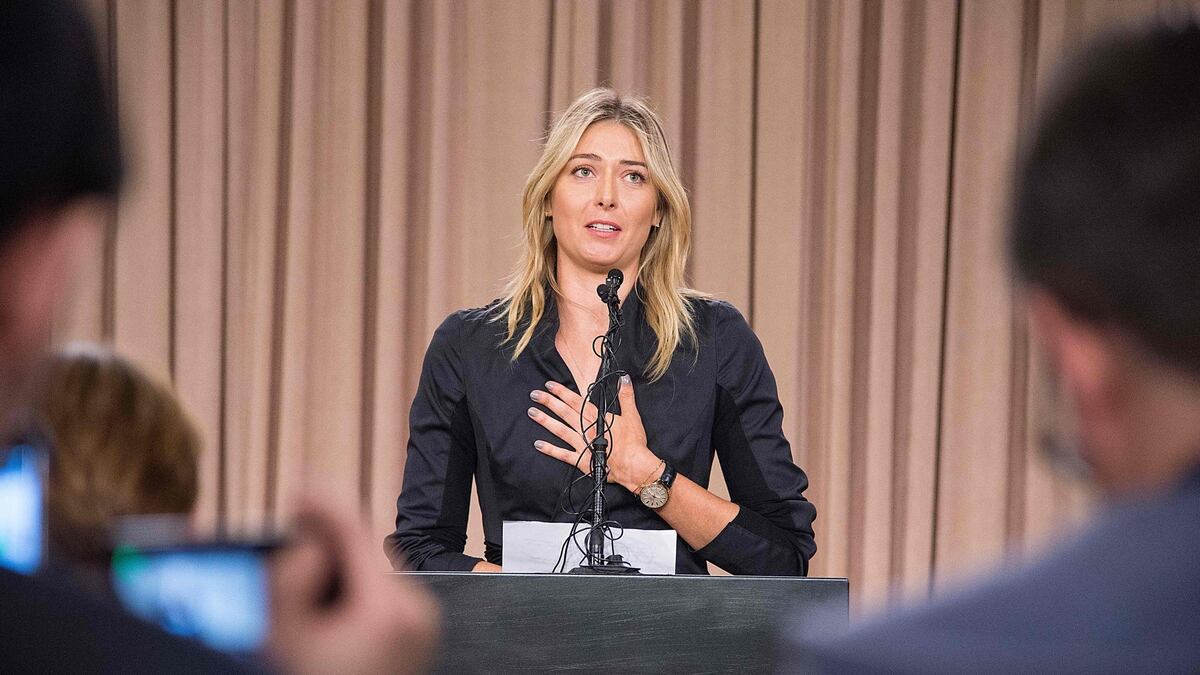Maria Sharapova’s tennis career caught attention when he made her debut in 2004, showcasing powerful groundstrokes and winning Wimbledon against Serena Williams.
She became tennis’s glamour girl winning the US Open in 2006 and the Australian Open in 2008 and in 2012 and 2014, she conquered the French Open. However, in 2016 she made history as the first tennis star to fail a doping test, admitting to using the banned drug meldonium.
Sharapova showed ignorance, stating she had been legally taking meldonium for 10 years, and was unaware of its recent ban. She stated that it was an oversight, but critics questioned why she and her team did not delve into the reasons for the drug’s prohibition.
“I had been legally taking the medicine for past 10 years, but on January 1 the rules have changed, and meldonium became a prohibited substance, which I had not known.”
Meldonium was prescribed for heart conditions by the World Anti-Doping Agency(WADA) in 2016 due to its frequent appearance in athlete’s drug tests. Athletes use it to enhance performance, benefitting from increased endurance and faster recovery. Tennis players, in particular, found these effects valuable during the demanding schedule of Grand Slam tournaments.
Sharapova’s failed test had significant consequences, leading to the termination of major sponsors and suspension from professional tennis for two years which was later reduced to 15 months by the Court of Arbitration for Sport. She made her return at the 2017 Porsche Tennis Grand Prix with a direct entry into the main draw.
Maria Sharapova overcomes crowd criticism to clinch 2006 Pacific Life Open

At the 2006 Pacific Life Open in Indian Wells, Maria Sharapova seeded third, displayed her prowess by securing a spot in the semifinals after defeating Jamea Jackson, Lisa Raymond, Shahar Pe’er, and Anna-Lena Gronfeld. Anticipating a tough match against 19th seed Martina Hingis, she acknowledged the challenge in a press conference.
“Yeah, I was really ready today. I knew it was going to be tough. I didn’t underestimate her level of play. I knew it was going to be a very tough match and I need to be ready for it.”
During the semifinal match, Sharapova revealed the impact of the crowd on her performance. In the second set, a spectator called out that she was getting tired, serving as a motivation for the Russian.
Responding with two consecutive winners, Sharapova playfully dismissed the notion of fatigue, referring to herself as a resilient “truck” and warned against underestimating her, humorously stating that messing with a truck would lead to becoming a “pancake”.
“Also the crowd got me better. In the second set, someone yelled, ‘Martina, she’s getting tired. That kind of pumped me up a little bit. I hit two winners in a row. I looked back at them, and I’m like, tired, my butt. So, don’t mess with a truck. You’re going to become a pancake.”
She eventually secured victory over Hingis and made her way to play the finals against Elena Dementieva.





